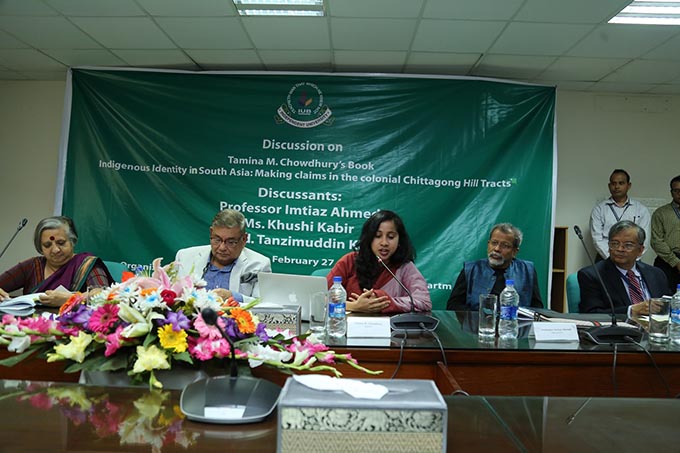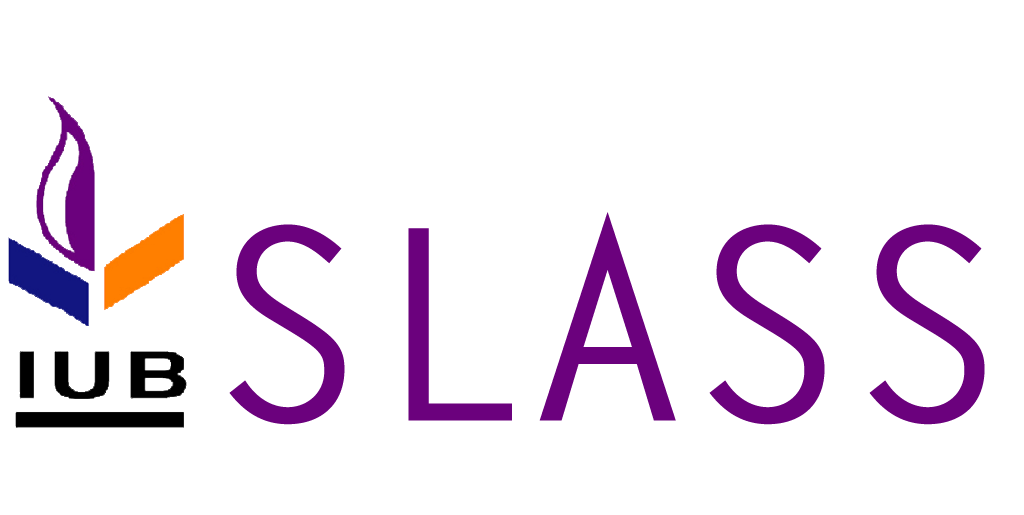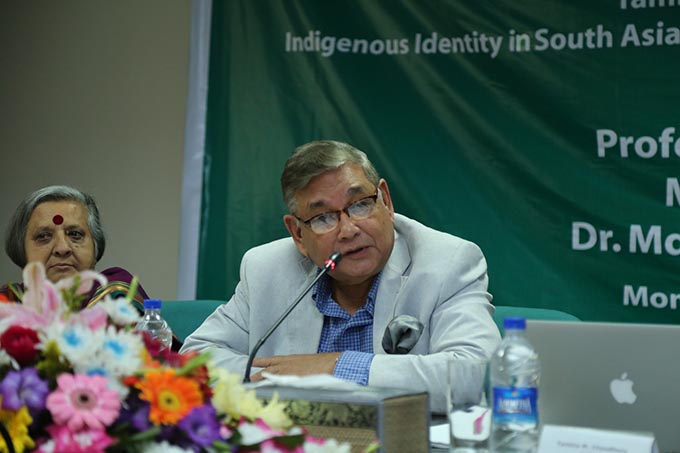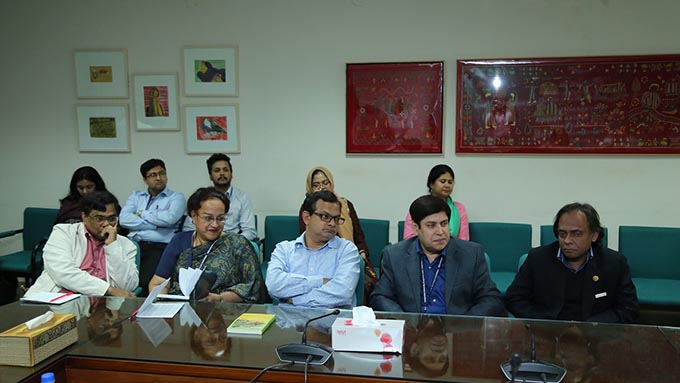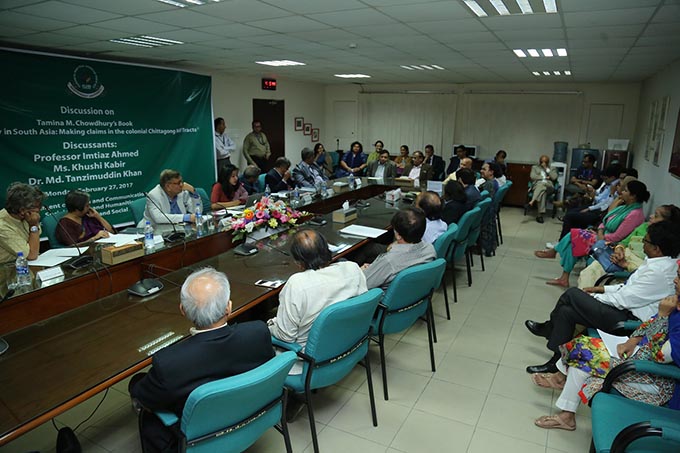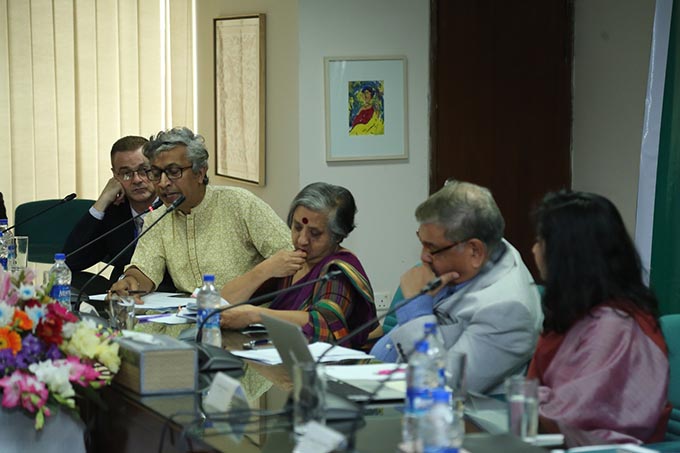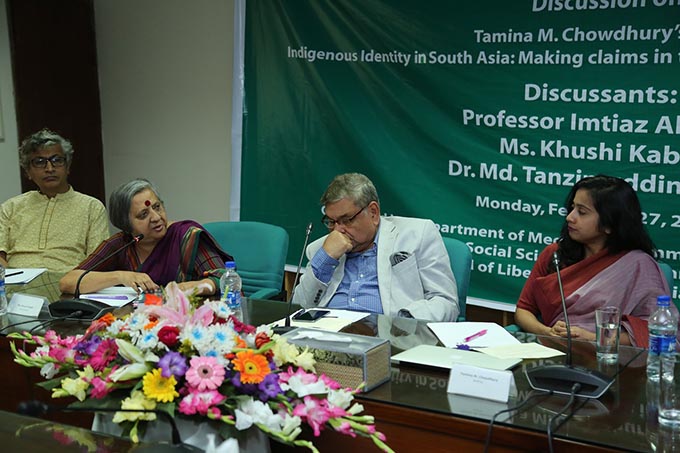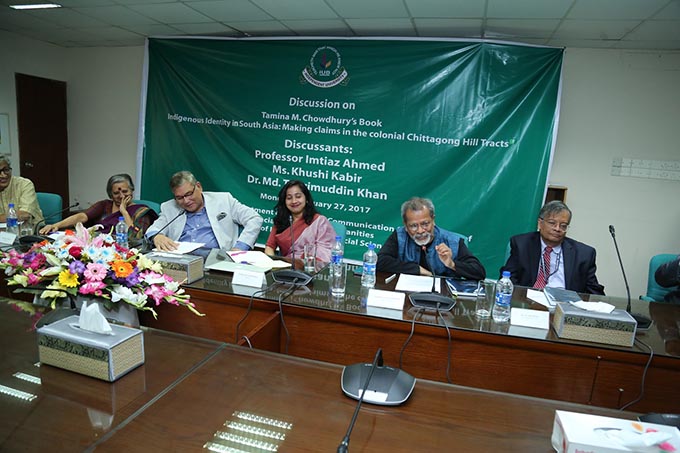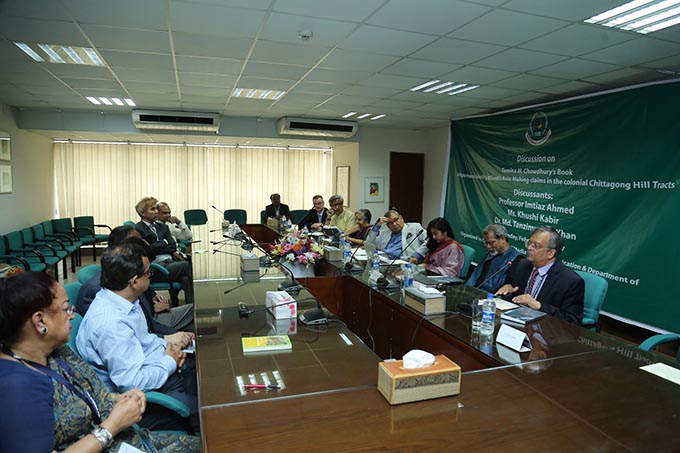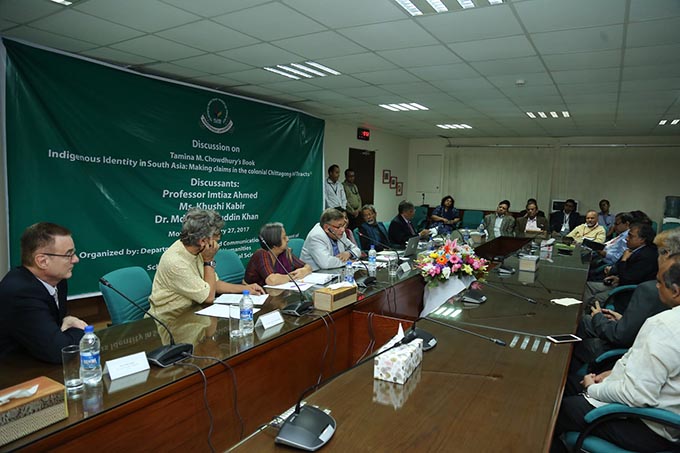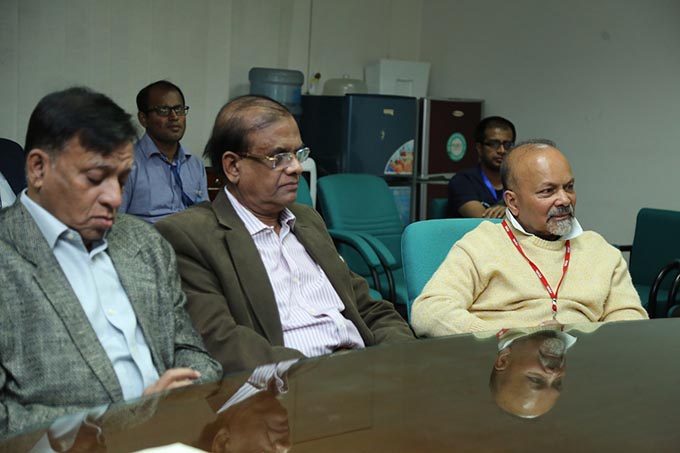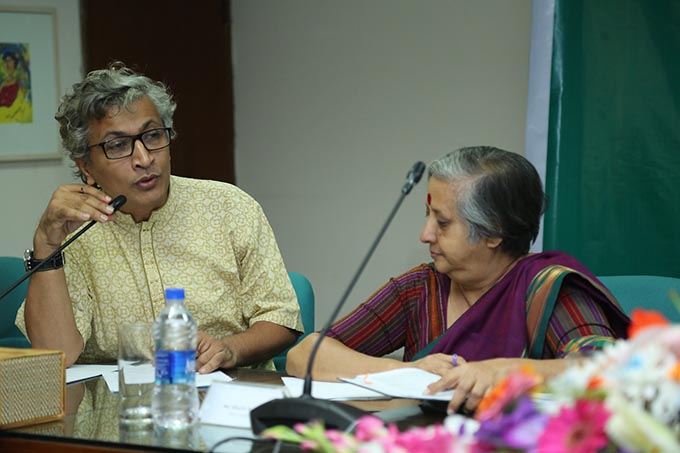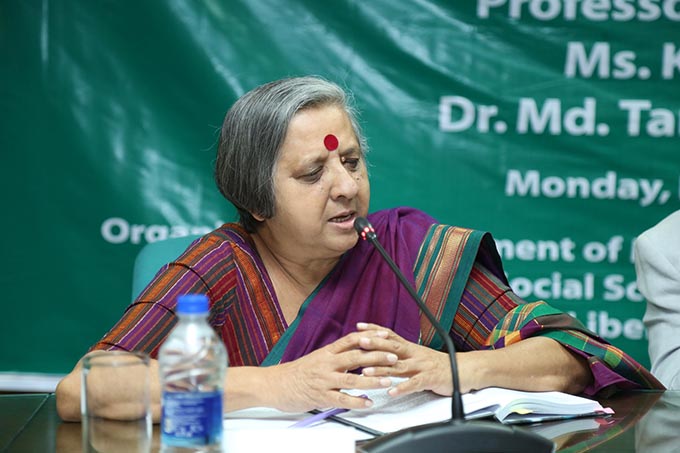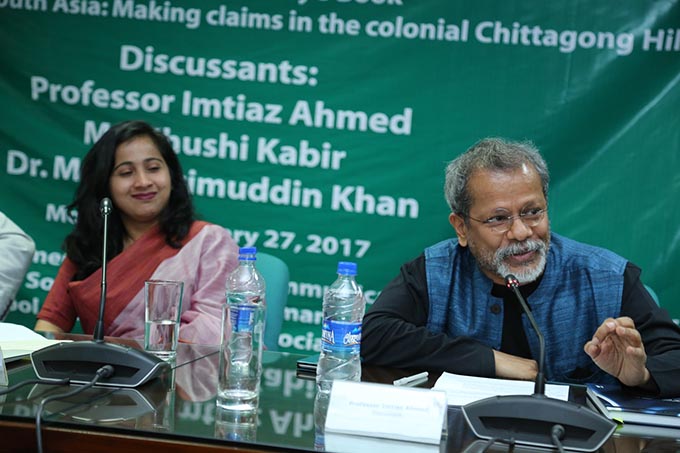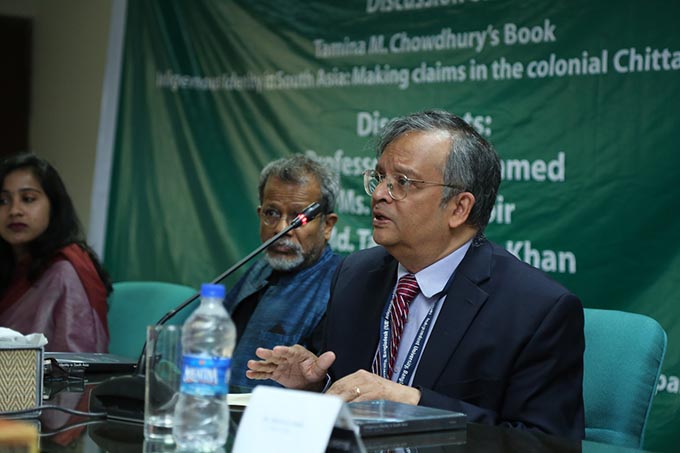The School of Liberal Arts and Social Sciences of Independent University, Bangladesh (IUB) organized an in-depth interactive discussion session with the author Dr. Tamina M. Chowdhury on her book “Indigenous Identity in South Asia: Making claims in the colonial Chittagong Hill Tracts” at its permanent campus in Bashundhara, Dhaka. Along with the author, Dr. Imtiaz Ahmed, Professor, Department of International Relations, University of Dhaka, eminent human rights activists Khushi Kabir and Dr. Md. Tanzimuddin Khan, Associate Professor, Department of International Relations, University of Dhaka were present as key discussants of the session. The event was moderated by Mr. Towhid Samad, Founder Trustee and former Chairman of the Board of Trustees, IUB and ESTCDT.
In his welcome speech, Prof. M. Omar Rahman, Vice Chancellor of IUB said that the topic of this book is of great interest at this period of time as the notion of identity has come back with a great force in the western world and IUB is happy to hold such a crucial interactive session with the author.
Describing the background of this book, Dr. Chowdhury said that “this book is an outcome of her PhD research work that she started six years back while studying at Cambridge University”. She informed that she had used unexplored archival sources in writing this book which showed how the concepts of ‘territory’ and of a ‘people indigenous to it’ have been forged and politicized. “The book challenges the general notion within existing knowledge that indigenous claims coming from the Chittagong Hill Tracts are a recent and contemporary phenomenon, which emerged with the founding of the Bangladesh state”, she highlighted. By analyzing the processes of colonization in the CHTs, the author argues that identities of distinct ethnicity and tradition predate the creation of Bangladesh, and first began to evolve under British patronage. Taking part in the discussion, Dr. Md. Tanzimuddin Khan, Associate Professor, Department of International Relations, University of Dhaka said that the book written based on the information received from secondary sources is to be appreciated as it gives a new insight on the much debated issue.
Describing the vulnerability brought to the indigenous people of CHTs created by Kaptai hydroelectric power plant in 1962; prominent human rights activists Khushi Kabir said that “the book would be vital source for understanding the colonial history and politics of CHTs as well as realizing the identity formation of the indigenous people living there”.
Dr. Imtiaz Ahmed, Professor, Department of International Relations, University of Dhaka hoped that this book would be a good source of knowledge and information of the administrative history of CHTs. He added that this book would bring a new dimension to the existing studies of the history of Bangladesh as it has showed “a far deeper” historical lineage of the claims being made in the CHTs.
Deans and Heads of different Schools and Departments, senior members of the faculty and management of IUB, dignitaries attend the program.
